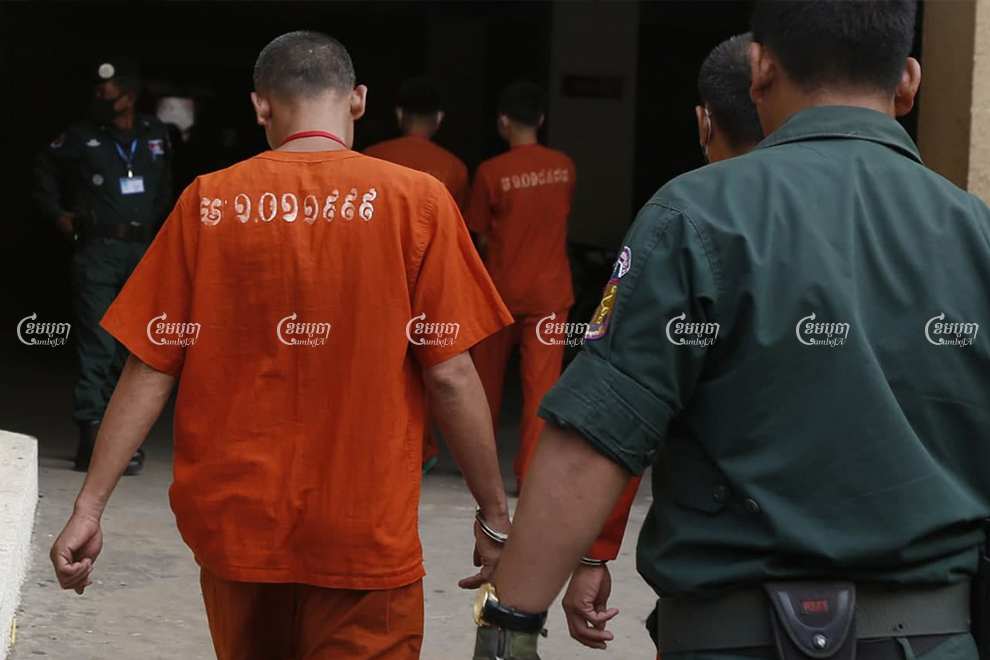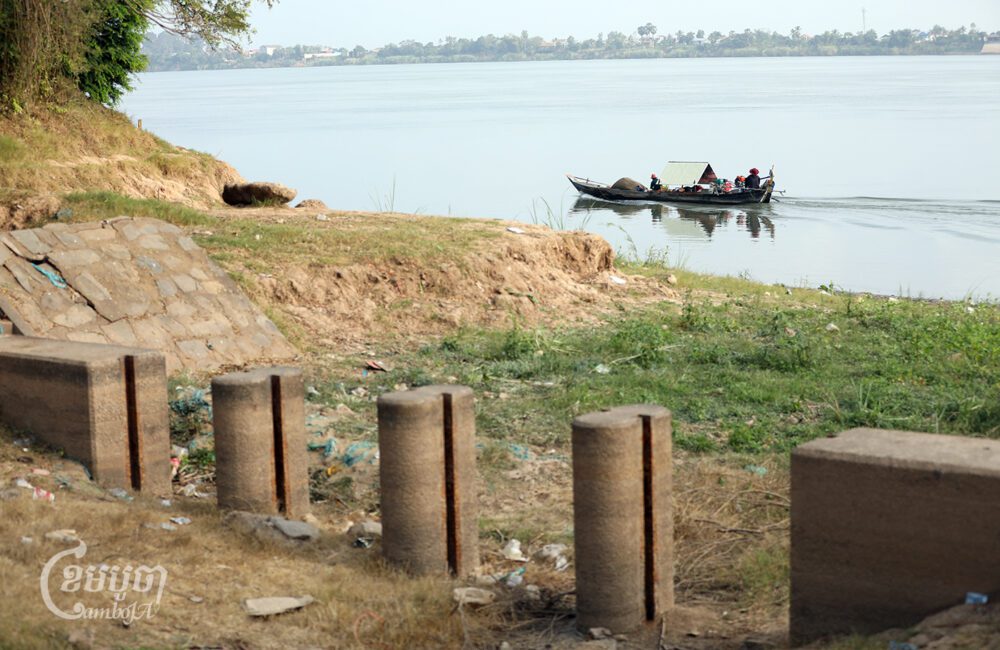Three international and domestic rights groups said the government must test prisoners who may have been exposed to an Interior Ministry official who had the disease, with Prime Minister Hun Sen focused on soliciting funds for vaccine acquisitions.
Rights groups Amnesty International, Human Rights Watch and Licadho said the government must conduct extensive testing of prisoners, considered one of the most vulnerable communities to COVID-19, ensure social distancing and make efforts to reduce prison populations.
“While more than 250 prison officials at the same prison have reportedly been tested for the virus, no prisoners in Phnom Penh’s Correctional Center 1 (CC1) have been tested for COVID-19 – even after potential contact with the department director who tested positive,” read the statement released on Wednesday.
Prisons Department Director Chhem Savuth is one of the first people to test positive for COVID-19, in a cluster that has since grown to 38 people. According to the department’s Facebook page, the Prisons Department director visited Phnom Penh’s CC1 prison and Banteay Meanchey before he tested positive.
Licadho statistics revealed overcrowding in 18 of 28 prisons across the country, with most at least three to four times over capacity. The three groups also called for health screenings for new inmates and a concerted effort to grant early release or bail to non-violent offenders.
“So far…the authorities have failed to address prison overcrowding, test prisoners potentially exposed to COVID-19 or provide prisoners with sufficient resources required to practice safe hygiene,” read the statement.
“This could result in an unnecessary and preventable major public health and human rights crisis.”
Be Tea Leng, a deputy director at the Prisons Department, said officials were speaking with the Health Ministry and United Nations to test prisoners, but had not received any response.
“We will ask technical assistance from the UN. I have contacted them but we have yet to get any response. I will meet them on [Thursday],” he said. “We will test only some prisons, especially CC1, but we don’t know when will we start yet.”
It has been 12 days since the new cluster was first identified and while more than 10,000 people have been tested, including prison guards, there is no indication of any prisoners being tested for COVID-19
Prime Minister Hun Sen has focused his attention on acquiring a vaccine, as a handful of global pharmaceutical companies announced emergency approvals for their vaccines.
Hun Sen said on Tuesday that the government was preparing to buy one million doses of COVID-19 vaccine, though officials have not decided which vaccine to acquire. A number of countries have already placed orders for millions of doses for their citizens, with the Cambodian government’s acquisition expected to benefit only 500,000 people at most.
“We need to discuss and look for more assistance. With one million doses, we can give it only 500,000 people,” he said.
He said the vaccine will be given to priority and high-risk groups like medical personnel, teachers, security and law enforcement officials, prison staff, environmental, fisheries and forestry employees, court staff and lawyers. It was unclear if the elderly, another vulnerable group, would be given the vaccine first.
However, he said the government has yet to decide when and where the vaccines will be ordered. During a visit to Cambodia in October, Chinese Foreign Minister Wang Yi had promised Cambodia it will be one of the first countries to get a COVID-19 vaccine.
Hun Sen also started soliciting funds for the vaccines, raising questions over the availability of state funds to inoculate large sections of the citizenry. Hun Sen posted an ABA Bank account number and asked people to transfer money to the account in support of the vaccine acquisition.
Within minutes, people were posting screenshots of transfer receipts, with the money sent to the account of “Tep Sothy.” Hun Sen later added bank transfer details for Acleda, Vatanak and Canadia banks, as well as a Wing account.
Government mouthpiece Fresh News reported that more than $30 million had been collected in the last two days, boosted by multimillion dollar donations from tycoons connected to the government and Cambodian People’s Party.
The government had solicited similar donations during the recent floods across the country, as well as during the early months of the pandemic. However, the government has not provided any accounting or auditing of these public funds.
Health Ministry Secretary of State Or Vandine declined to comment, saying the relevant ministries were still meeting to discuss the issue.
Meas Soksensan, the Ministry of Economy and Finance spokesperson, said the prime minister would make any announcements about vaccine acquisition.
Hun Sen said the government would allocate budget to purchase an additional two to three million doses for a second phase of inoculation but wanted assistance from development partners, again not revealing if there were budgetary constraints.
Pech Pisey, executive director of Transparency International Cambodia welcomed the government’s efforts to secure COVID-19 vaccines for Cambodians but said the process needed to be transparent and with accountability.
On the issue of private donations, he said it was important for Cambodia to draft a “political donations” regulation, which is critical for a country with a widespread patron-client system.
“The authenticity of donations is a critical issue; if the donation leads to an exchange where a particular [individual] benefits and is a conflict of interest then public interest will be affected,” he said.
Chak Sopheap, an executive director of Cambodia Center for Human Rights, said the solicitation and reliance on donations from influential tycoons raised concerns over the government ability to fund projects of public importance.
“There is a dire need for the government to ensure the national budget can provide sufficient resources to the health sector, enabling an adequate response to disasters and health crises. We should be establishing strong institutions that function independently without reliance on donations or generosity,” she said.
The government approved in October a draft annual budget of approximately $7.62 billion for 2021, down from more than $8.2billion allocated for the 2020 budget.
The $7.62 billion budget includes $4.36 billion for current expenditure and $3.26 billion for capital expenditure.








